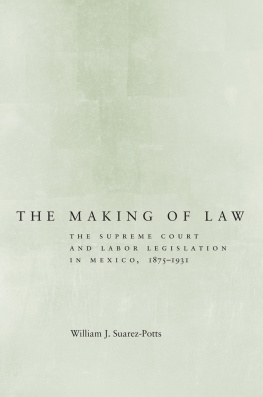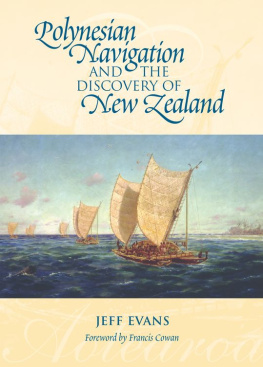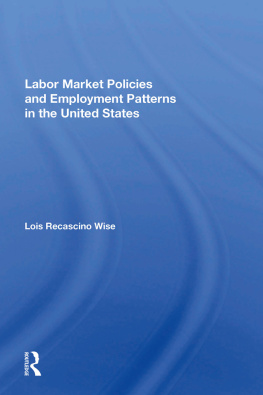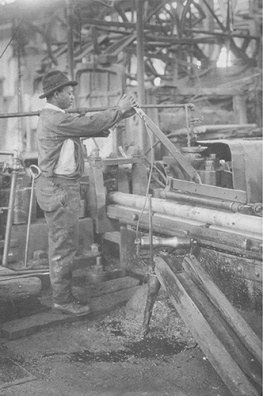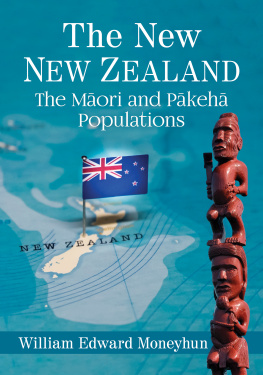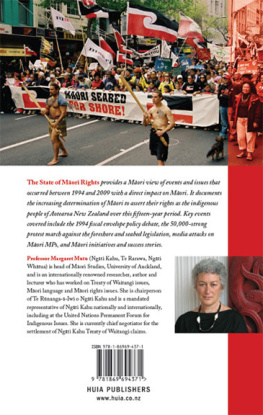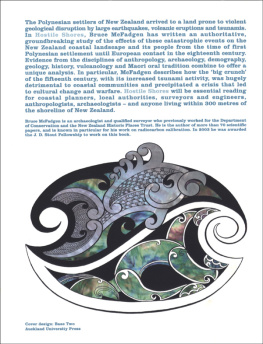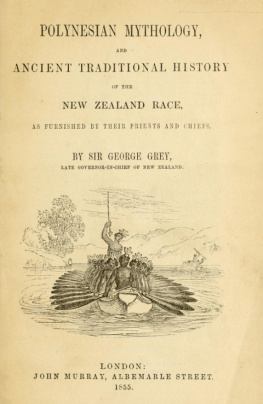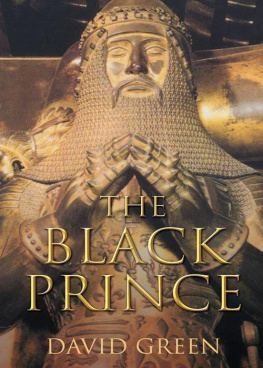K.R. Howe - Singer in a Songless Land: A Life of Edward Tregear, 1846-1931
Here you can read online K.R. Howe - Singer in a Songless Land: A Life of Edward Tregear, 1846-1931 full text of the book (entire story) in english for free. Download pdf and epub, get meaning, cover and reviews about this ebook. year: 1992, publisher: Oxford University Press, USA, genre: Non-fiction / History. Description of the work, (preface) as well as reviews are available. Best literature library LitArk.com created for fans of good reading and offers a wide selection of genres:
Romance novel
Science fiction
Adventure
Detective
Science
History
Home and family
Prose
Art
Politics
Computer
Non-fiction
Religion
Business
Children
Humor
Choose a favorite category and find really read worthwhile books. Enjoy immersion in the world of imagination, feel the emotions of the characters or learn something new for yourself, make an fascinating discovery.

- Book:Singer in a Songless Land: A Life of Edward Tregear, 1846-1931
- Author:
- Publisher:Oxford University Press, USA
- Genre:
- Year:1992
- Rating:4 / 5
- Favourites:Add to favourites
- Your mark:
- 80
- 1
- 2
- 3
- 4
- 5
Singer in a Songless Land: A Life of Edward Tregear, 1846-1931: summary, description and annotation
We offer to read an annotation, description, summary or preface (depends on what the author of the book "Singer in a Songless Land: A Life of Edward Tregear, 1846-1931" wrote himself). If you haven't found the necessary information about the book — write in the comments, we will try to find it.
K.R. Howe: author's other books
Who wrote Singer in a Songless Land: A Life of Edward Tregear, 1846-1931? Find out the surname, the name of the author of the book and a list of all author's works by series.
Singer in a Songless Land: A Life of Edward Tregear, 1846-1931 — read online for free the complete book (whole text) full work
Below is the text of the book, divided by pages. System saving the place of the last page read, allows you to conveniently read the book "Singer in a Songless Land: A Life of Edward Tregear, 1846-1931" online for free, without having to search again every time where you left off. Put a bookmark, and you can go to the page where you finished reading at any time.
Font size:
Interval:
Bookmark:
Singer in a Songless Land
By the same author:
The Loyalty Islands: a history of culture contacts 18401900
Race relations Australia and New Zealand: a comparative survey 1770s-1970s
Where the waves fall: a new South Sea islands history from first settlement to colonial rule
The verse of Edward Tregear (editor)
A LIFE OF EDWARD TREGEAR 18461931
K.R. HOWE

First published 1991
This ebook edition 2013
Auckland University Press
University of Auckland
Private Bag 92019
Auckland 1142
www.press.auckland.ac.nz
Kerry Howe 1991
This book is copyright.
Apart from any fair dealing for the purpose of private study, research, criticism, or review, as permitted under the Copyright Act, no part may be reproduced by any process without the prior permission of Auckland University Press.
eISBN 978 1 86940 662 2
Typeset by Typocrafters Ltd
Printed in Hong Kong
Distributed outside New Zealand
by Oxford University Press
This book is published with the assistance of a grant from the Historical Branch of the Department of Internal Affairs.
This study could never have been undertaken without the enthusiastic co-operation of Tregears two surviving grandchildren, Vera Maclean and Herbert Robinson (Auckland), and his great-nephew Ian Morrison (Wellington). They spent very many hours talking and writing to me about Tregear and they generously allowed me to consult their private papers.
As ever, staff of the Alexander Turnbull Library and National Archives (Wellington and Auckland) were unfailingly helpful. I also owe a particular debt to Herbert Roth, who so generously shared all his very many references to Tregear and who read the completed manuscript. W. H. Oliver also kindly read the manuscript.
Many other people throughout New Zealand helped me with this project. (Note: local bodies and government departments are listed by their names when I consulted them. Many now have different names as a result of government restructuring.) R. V. Eades, Wynyard Wilson Barristers and Solicitors, Auckland; Brad Patterson, Department of Lands and Survey, Wellington; Richard Hill and David Green, Historical Publications Branch, Department of Internal Affairs; R. Schwass and K. W. Walsh, Department of Lands and Survey, Hamilton; D. R. Rinckes, Department of Lands and Survey, Wellington; Peter Harding, Department of Lands and Survey, New Plymouth; Robert Ellwood, Wellington; Jim Dakin, Victoria University; John Male, and Harry Bioletti, Mahurangi; Lucy Moore, Warkworth; I. Caird of Bell Gully Buddle Weir Solicitors, Wellington; M. L. Hurrey, Puhoi; J. A. McRae, University of Otago; R. P. Goodey, Hawera Star Printing and Publishing Company; Noel Johnston, Hawera District Council; G. L. Baker, Patea Historical Society; A. M. Bergen, Patea County Council; Nevil Matthews, Blenheim; W. K. Carnahan, Nelson; Mr and Mrs Dawkins, and Mr and Mrs Colin McKnight, Picton; Margaret Avery, University of Waikato.
People overseas also assisted me: Stephen Rabson, P&O, London; Kay Chapman, National Maritime Museum, Greenwich; D. S. Porter, Bodleian Library, Oxford; S. D. Thomson, City Archivist, Southampton; Jean Chapman, Royal Historical Society; Annegret Ogden, Bancroft Library, University of California, Berkeley; Robert Langdon, Canberra. I am particularly grateful to Michael Maher, Illinois.
I thank Robert C. Kiste, Brij Lal and Danny Kwok of the University of Hawaii where I spent a period on an Andrews Distinguished Fellowship. I am also grateful for a Fulbright Travel Grant. Similarly I thank Gavan Daws of the Australian National University where I was a Visiting Fellow.
I am grateful to Massey University for support from its Research Fund, and from its library staff. Photographs were kindly prepared by the universitys photographic unit. Alan Williams and William Broughton provided useful assistance. I owe a particular debt to my colleagues in the Department of History, in particular Alison Hanham, Basil Poff, Barrie Macdonald, and visiting Fulbright Fellow Francis Shor. Rama McGee patiently coped with my ASCII files from my computer (state-of-the-art when I commenced this project and now obsolete). Above all I am indebted to Colin Davis for his support, for his reading of the manuscript, and particularly for asking the hardest, but the very best, questions about Tregear.
Finally I thank my family yet again for their tolerance.
K. R. Howe December 1990
All still, all silent, tis a songless land
(Midnight, c. 1873)
At the beginning of this century Edward Tregear was one of New Zealands most prominent citizens and widely published intellectuals. He was an acclaimed international authority in Maori and Polynesian studies, and he was the controversial socialist who, as Secretary of the Department of Labour, administered for twenty years the worlds most advanced labour legislation during the Liberal era. Progressive reformers from all over the world came to study New Zealands labour laws in action. Tregear was also a key player in early attempts to form a united political labour movement. As well, he was a poet, novelist and social critic.
Tregear was in all these respects rather different from most people in New Zealand, and that in itself is deserving of a biography. Yet there is also much in his life that is quintessential to New Zealands (Pakeha) history, which is an additional justification for this study. Among the many obvious themes in this history that his experiences epitomise are the progression from a rough, lonely, isolated, bachelor life of soldiering and surveying in the wilderness to eventual settled family life in a city. There was an associated social progress through ability, as opposed to birth or wealth, from total obscurity to a position of some influence in New Zealand. And there was a further associated emotional and intellectual progression of a young, anguished, exiled Briton figuratively lost in an alien land to an older, wiser figure who has come to terms with and indeed glories in his new world. Tregear epitomises the development of New Zealand nationalism.
On a more academic level, Tregears life is an archetype of Miles Fairburns already indelible historical paradigm of the atomised and bondless colonial society, characterised by physical isolation and loneliness, and its eventual replacement, notably encouraged during the Liberal era, of a centralised, bureaucratic State community and mass culture. Fairburns The ideal society and its enemies: the foundations of modern New Zealand society 18501900 did not appear until this biography was all but complete. What struck me was the extent to which Tregears life and thought mirrored that more general experience Fairburn so graphically described. There is so much of Tregears socio-political analysis of New Zealand, especially in his socialistic essays for the American progressive audience, and even his terminology (such as when he raged against wayward tramps, calling them vagrant atoms of population) that locks him into the Fairburnian paradigm. Fairburns generalities (if not always particularities) seem sustainable, then, from two quite separate historical methodologies the study of individual experience, and the study of broad socio-community behaviour.
This biography is also very much concerned with the centrality, for both Tregear as an individual and for New Zealand society as a whole, of what Tregear called socialism. By that term he meant the development of a national culture based on the states assumption of ethical responsibility for and paternal control of all its citizens. What in practical terms this state socialism amounted to, generally under the Liberals, and particularly under Tregears guidance as Secretary of the Department of Labour from 1891 to 1910, was the evolution of highly centralised state agencies controlled by a self-styled moral, decent, caring intelligentsia (of whom Tregear was a major figure), boundless faith in the ability of voluminous and complex legislation to bring about socio-economic change, and a tradition of a massive administrative bureaucracy that reached into the most remote workplace and household in the country. Tregear was amongst the most passionate, and successful, of New Zealands reformers, with a particular, even obsessive, concern for the wellbeing of women and youths in commercial and industrial enterprise. But an account of these heroic activities is also replete with the more problematic implications of creating and administering state socialism, for example, the classic liberal dilemma of how to reconcile the goals of good order, discipline and efficiency with the equally pressing goals of compassion and caring (the state as policeman and nurse); how to assess the relative merits of the collective as opposed to the individual will; who should run the state and make such decisions; what role should capitalism play in the state administered society should it be abolished altogether or its potentially evil consequences merely mitigated by palliative action?
Next pageFont size:
Interval:
Bookmark:
Similar books «Singer in a Songless Land: A Life of Edward Tregear, 1846-1931»
Look at similar books to Singer in a Songless Land: A Life of Edward Tregear, 1846-1931. We have selected literature similar in name and meaning in the hope of providing readers with more options to find new, interesting, not yet read works.
Discussion, reviews of the book Singer in a Songless Land: A Life of Edward Tregear, 1846-1931 and just readers' own opinions. Leave your comments, write what you think about the work, its meaning or the main characters. Specify what exactly you liked and what you didn't like, and why you think so.

